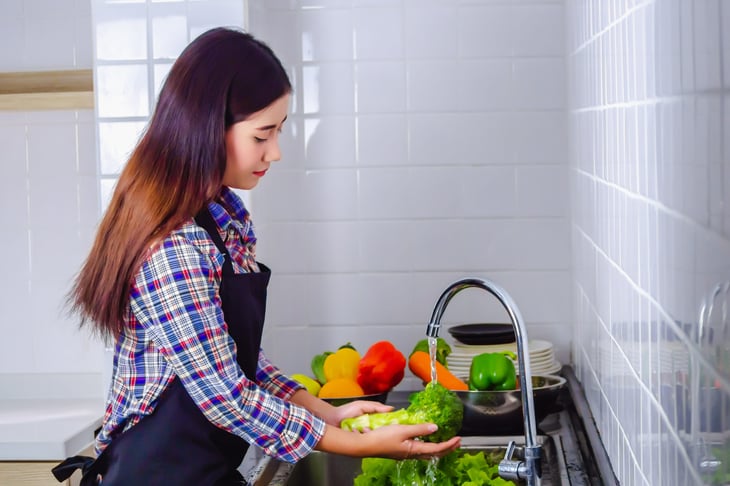
Editor’s Note: This story originally appeared on Living on the Cheap.
Food waste by the average American family is estimated at 25% to 30% of your grocery shopping dollars. Fresh vegetables top the list.
If you have a better use for one-fourth of your grocery budget, please read on for simple ways to store and preserve fresh vegetables before they become food waste in the trash or compost bin.
Here are storage recommendations for popular seasonal vegetables. As a general rule, locally grown organic produce does not stay fresh as long as conventional produce.
Store all fresh vegetables without washing. Moisture on vegetables makes them decay more quickly.
Just before you are ready to use them, wash vegetables in plenty of running water and then prepare as desired.
Vegetables that show signs of spoilage begin to wilt or soften. Before they become food waste, preserve them using one of these best preservation methods for fresh vegetables.
Artichokes
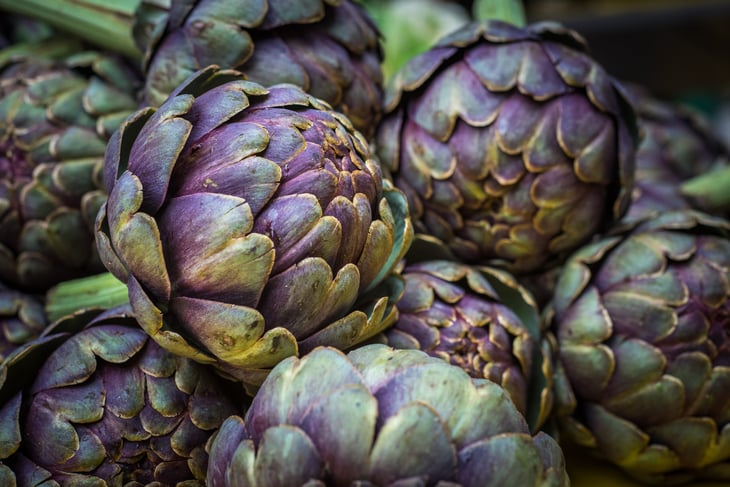
Sprinkle with water and store in plastic bags in the refrigerator up to one week.
Asparagus
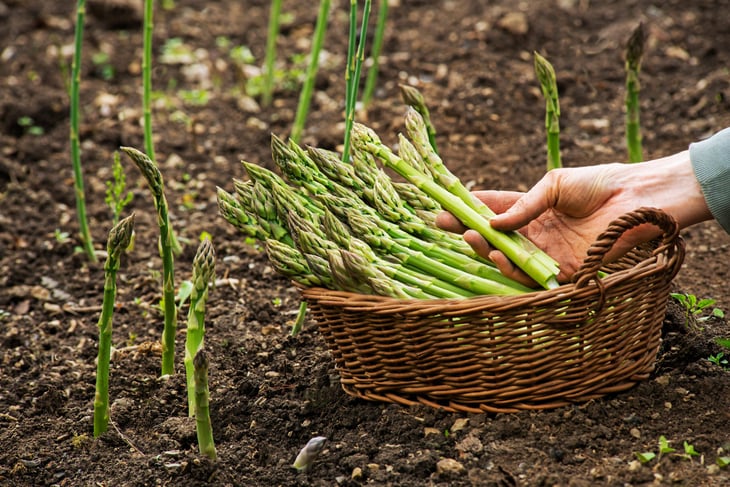
Wrap the base of a bunch of spears in damp paper or cloth towels and place in a plastic bag with holes (or left open), or stand the spears in a container with the spears in an inch of water and covered loosely with plastic, and store in the refrigerator up to five days.
Beets, turnips and rutabagas
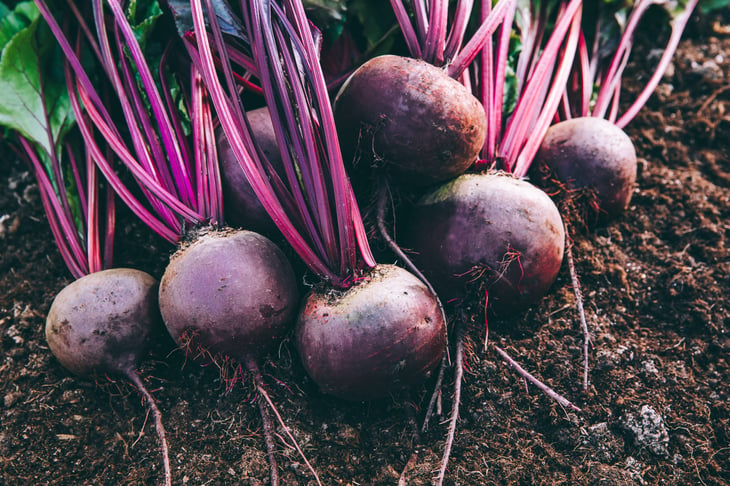
Store greens and roots separately. Cut off greens, leaving 1 to 2 inches of stem attached to the root. Wrap greens in a paper or cloth towel and place in the vegetable bin or plastic bag in the refrigerator.
Place roots unwrapped in the vegetable bin or in a plastic bag in the refrigerator. Store greens for a few days and roots up to three weeks.
Broccoli and cauliflower
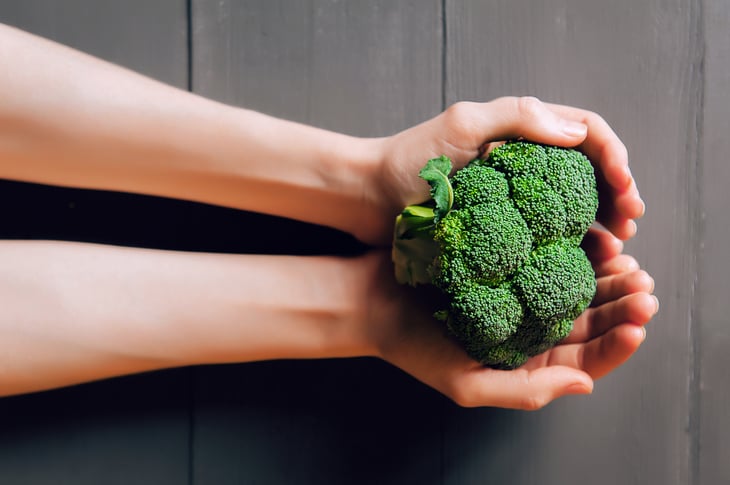
Wrap vegetables in a paper or cloth towel and place in the vegetable bin or in a plastic bag in the refrigerator up to two weeks.
Cabbages and bok choy
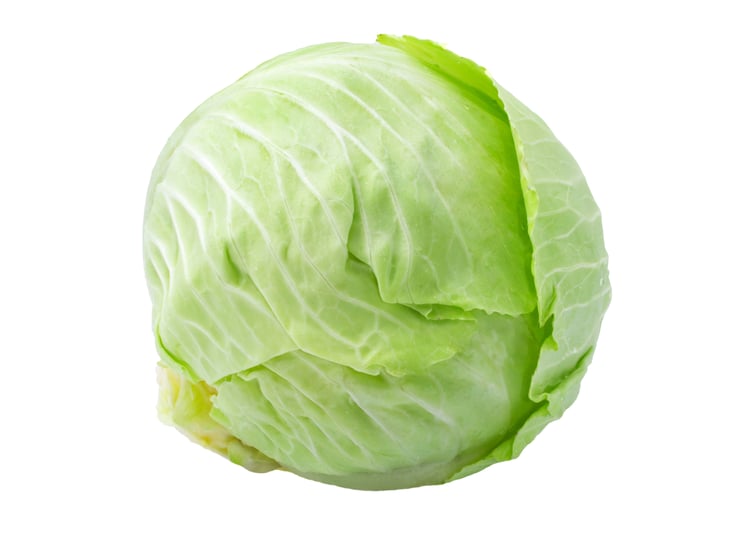
Store heads unwrapped in the vegetable bin or in a plastic bag in the refrigerator up to two weeks.
Wrap ruffled Savoy and Nappa cabbage or leafy bok choy in a paper or cloth towel before storage; these varieties spoil more quickly, so plan to prepare within a few days.
Carrots and parsnips
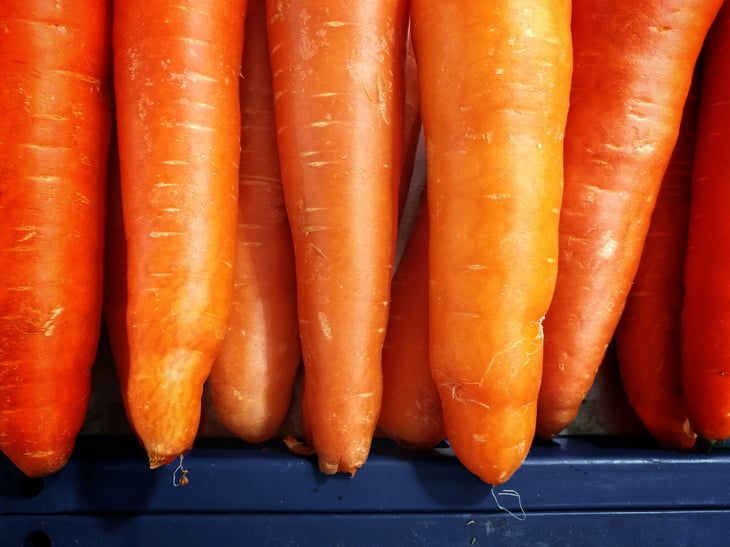
Carrot and parsnip greens are usually cut off and discarded; however, some people like to use the tops to make pesto, add them raw to salads or cook them in soup as you would parsley.
If your skin is irritated when handling these greens, it may indicate you are sensitive to the tops and should avoid consuming them.
Store roots in the vegetable bin or in plastic bags in the refrigerator up to two months. Large mature roots, especially those mulched in the garden over winter, keep longer than young vegetables.
Raw parsnips turn brown when peeled or cut, so soak for 15 minutes in 1 quart water with ¼ cup lemon juice or 1½ teaspoons vinegar and 1½ teaspoons salt.
Fennel
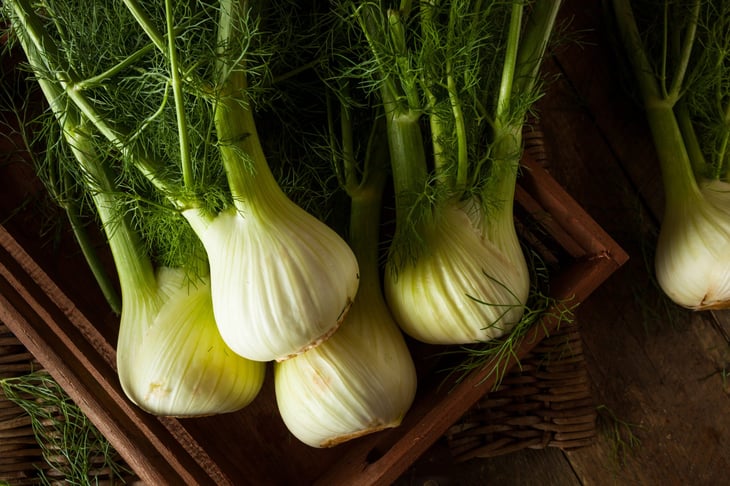
Store fennel bulbs loose in the vegetable bin or a plastic bag in the refrigerator up to one week. Wrap the feathery tops in a paper or cloth towel to prevent wilting.
Leeks
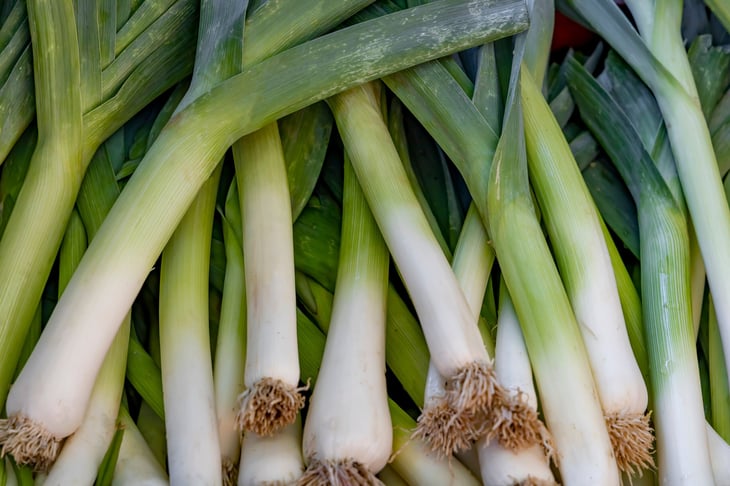
Store leeks loose in the vegetable bin or a plastic bag with holes (or left open) in the refrigerator up to one week.
Lettuce and greens, including beet greens and spinach
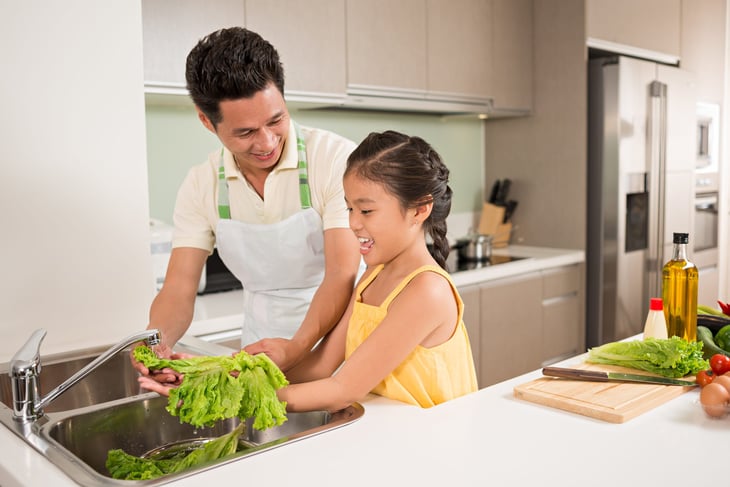
Discard any bruised or wilted leaves. Store greens in plastic bags in the refrigerator, up to two days for leafy greens and one week for lettuce heads.
If salad greens begin to wilt, make this lettuce soup recipe, which you can enjoy today or freeze up to one month. (Freeze the soup without cream and add it after you reheat the frozen soup.)
Mushrooms
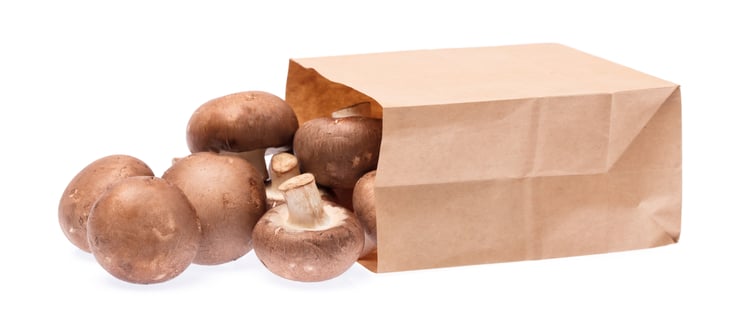
Store mushrooms in a brown paper bag or wrapped in paper or cloth towels in the vegetable bin in the refrigerator up to one week. Layering mushrooms in paper or cloth towels will help extend their shelf life.
Do not store in plastic or other airtight containers as this shortens their storage life to just two to three days.
Okra
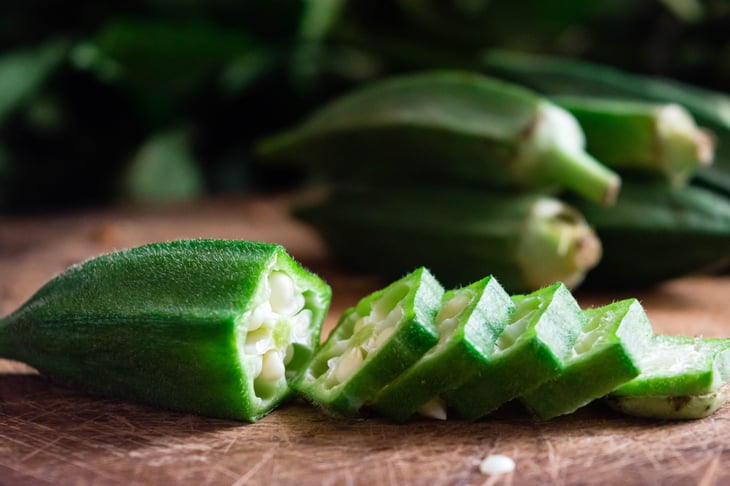
Store okra in a brown paper bag or wrapped in paper or cloth towels in the vegetable bin or in plastic bags with holes (or left open) in the refrigerator up to three days.
Onions
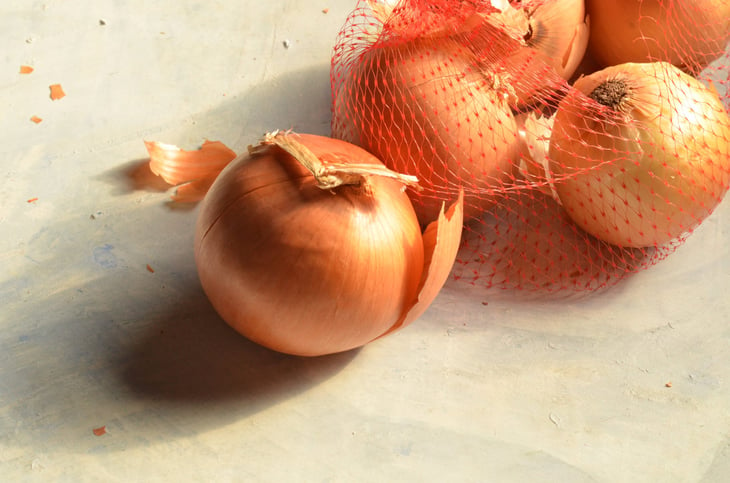
Store dry onions and shallots in a basket or paper bag in a cool (50 to 60 degrees F), dark place up to one month.
Stand fresh green onions or scallions in a container with the roots in an inch of water and covered loosely with plastic and store in the refrigerator up to one week, or wrap a bunch in paper or cloth towels and store in the vegetable bin or in a plastic bag in the refrigerator up to five days.
You can also regrow your own green onions in your kitchen.
Peas
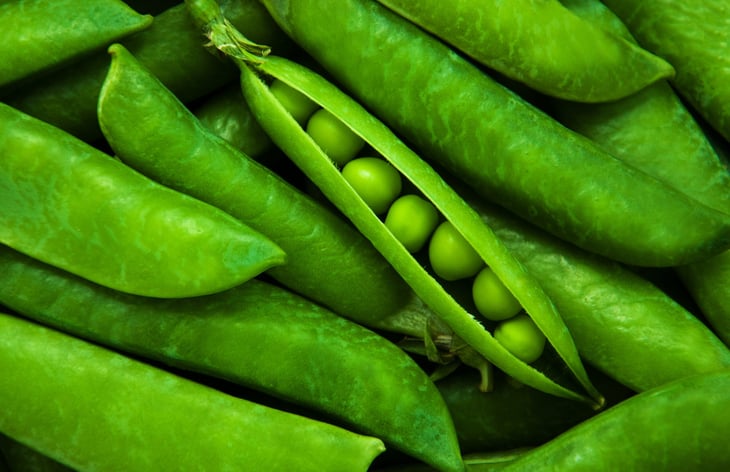
Store pea pods wrapped in paper or cloth towels in the vegetable bin or in a plastic bag with holes (or left open) in the refrigerator up to five days.
Potatoes
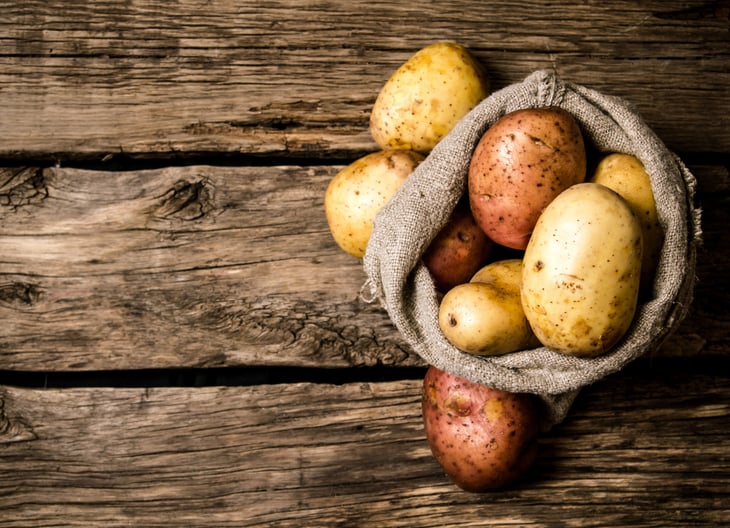
Store raw potatoes in a basket or paper bag in a cool, dark place (40 to 60 degrees F) to delay sprouting and shriveling.
Potatoes exposed to light turn green; before preparing trim any green areas, which taste bitter and can cause indigestion if eaten in large amounts. If potatoes sprout or shrivel, trim the sprouts and cook as soon as possible.
Never refrigerate raw potatoes, as refrigeration turns their starch to sugar and creates “off” flavors when cooked. Store potatoes away from other produce, especially apples, pears, bananas and onions, which cause potatoes to spoil more quickly.
Raw potatoes turn brown when peeled and cut, so soak for 15 minutes in 1 quart of water with ¼ cup lemon juice or 1½ teaspoons vinegar and 1½ teaspoons salt.
Radishes
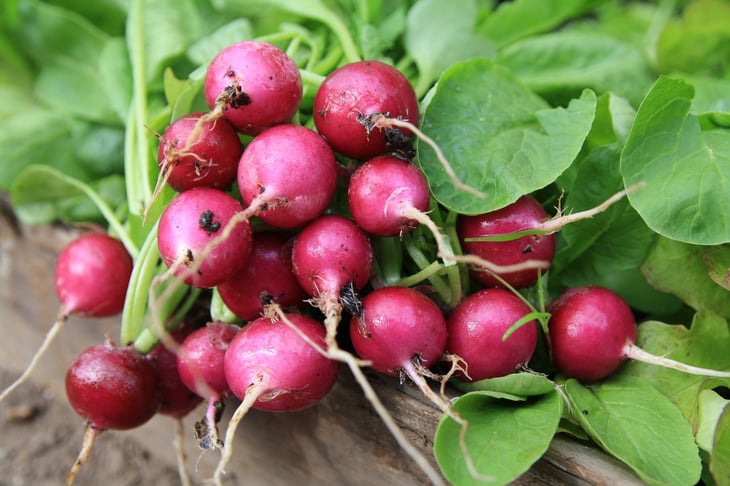
Radish tops are not usually eaten in the United States, but are delicious raw in salads, as well as made into radish tzatziki or cooked into radish top soup.
Try roasting your radishes, which minimizes the bite.